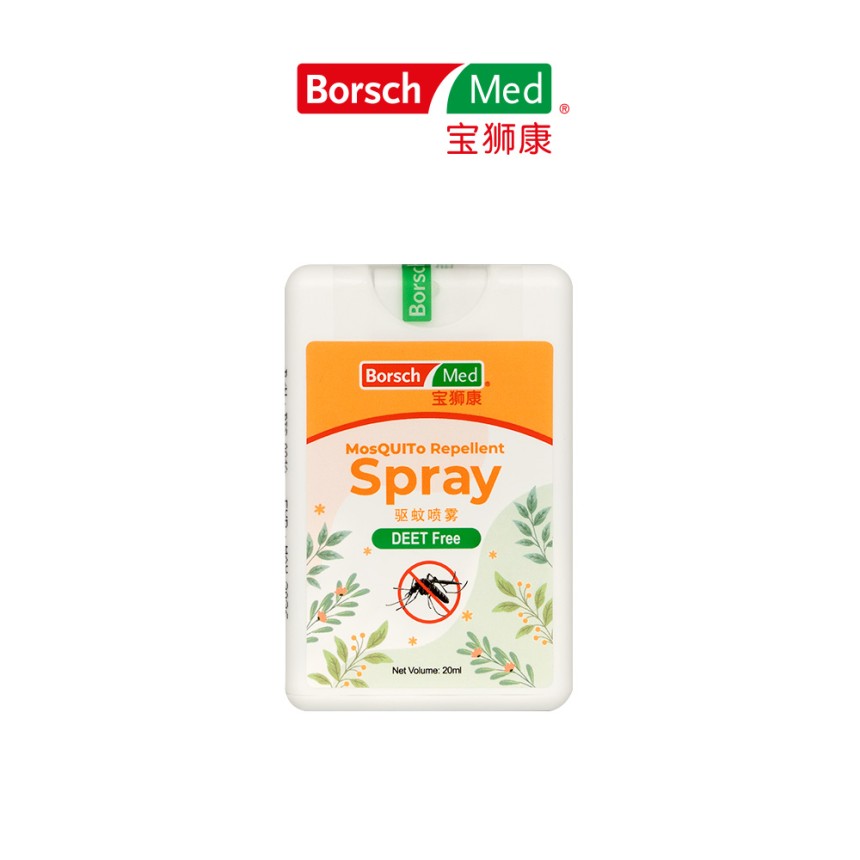
Natural Mosquito Repellent: Your Ultimate Guide
In this comprehensive guide, we delve into the best natural mosquito repellents, providing you with effective and eco-friendly solutions to keep these pests at bay.
As the warm months approach, the nuisance of mosquitoes becomes a prevalent issue. At Gjh Eshop, we understand the importance of enjoying the outdoors without the constant bother of mosquito bites. In this comprehensive guide, we delve into the best natural mosquito repellents, providing you with effective and eco-friendly solutions to keep these pests at bay.
Why Choose Natural Mosquito Repellent?
Choosing natural mosquito repellents over chemical alternatives offers several benefits. Firstly, they are safe for both humans and pets, reducing the risk of allergic reactions and skin irritations. Secondly, natural repellents are environmentally friendly, minimizing the impact on ecosystems. Lastly, they often contain pleasant fragrances, enhancing your outdoor experience.
Top Natural Ingredients for Mosquito Repellent1. Essential Oils
Essential oils are potent plant extracts that are known for their mosquito-repelling properties. Some of the most effective ones include:
- Lemon Eucalyptus Oil: Approved by the CDC as an effective mosquito repellent, lemon eucalyptus oil is a popular choice. Its active ingredient, PMD, provides long-lasting protection.
- Lavender Oil: Not only does lavender oil smell delightful, but it also repels mosquitoes. It has analgesic, antifungal, and antiseptic qualities.
- Tea Tree Oil: Known for its antimicrobial properties, tea tree oil can also keep mosquitoes at bay while promoting skin health.
- Peppermint Oil: The strong scent of peppermint oil is offensive to mosquitoes, making it a great natural repellent.
2. Garlic
Garlic is not just for cooking; its strong odor is also effective in repelling mosquitoes. Consuming garlic or applying a garlic-infused solution to your skin can provide a barrier against these pests.
3. Neem Oil
Neem oil, derived from the neem tree, has been used for centuries in traditional medicine. It has strong antibacterial, antifungal, and antiviral properties. When applied to the skin, neem oil provides long-lasting protection against mosquito bites.
4. Citronella
Citronella oil, extracted from lemongrass, is a widely recognized natural mosquito repellent. It works by masking the scents that attract mosquitoes, making it harder for them to find their targets.
5. Basil
Basil is not only a culinary herb but also a mosquito repellent. Planting basil around your home or using basil oil can help keep mosquitoes away. It contains compounds like estragole, eugenol, and other essential oils that repel mosquitoes.
DIY Natural Mosquito Repellent Recipes1. Essential Oil Spray
Ingredients:
- 10 drops of lemon eucalyptus oil
- 10 drops of lavender oil
- 5 drops of tea tree oil
- 2 tablespoons of witch hazel
- 2 tablespoons of distilled water
Instructions:
- Combine all ingredients in a small spray bottle.
- Shake well before each use.
- Spray on exposed skin, avoiding the eyes and mouth.
2. Garlic-Based Repellent
Ingredients:
- 4 cloves of garlic
- 1 tablespoon of mineral oil
- 1 teaspoon of liquid soap
- 2 cups of water
Instructions:
- Crush the garlic cloves and let them sit in mineral oil overnight.
- Strain the mixture and add the liquid soap and water.
- Pour into a spray bottle and apply to the skin or around your outdoor area.
Natural Mosquito Repellent Plants1. Marigolds
Marigolds contain pyrethrum, a compound used in many insect repellents. Planting marigolds around your garden can deter mosquitoes and other pests.
2. Catnip
Catnip contains nepetalactone, which is highly effective at repelling mosquitoes. It is said to be ten times more effective than DEET, the chemical used in many commercial repellents.
3. Rosemary
Rosemary is another herb that can repel mosquitoes. Its woody scent is particularly offensive to these pests. Planting rosemary or using rosemary oil can provide effective protection.
4. Mint
Mint is a versatile plant that can be used in cooking, drinks, and as a mosquito repellent. Its strong scent is disliked by mosquitoes. Plant mint in pots around your outdoor space or use mint oil on your skin.
Benefits of Natural Mosquito Repellents1. Health and Safety
Natural mosquito repellent are free from harmful chemicals like DEET, which can cause skin irritations and other health issues. They are safe for use on children and pets, providing peace of mind for families.
2. Environmental Impact
Using natural repellents helps reduce the environmental footprint. They are biodegradable and do not contribute to pollution, making them a sustainable choice.
3. Cost-Effectiveness
Many natural mosquito repellents can be made at home using common ingredients, making them a cost-effective alternative to commercial products. Growing repellent plants also adds aesthetic value to your garden while keeping pests away.
Conclusion: Embrace Natural Mosquito Repellents
At Gjh Eshop, we are committed to providing eco-friendly solutions for a mosquito-free environment. By choosing natural mosquito repellents, you can protect yourself and your loved ones from mosquito bites without compromising on health or the environment. From essential oils and DIY sprays to repellent plants, there are numerous ways to keep mosquitoes at bay naturally.
This Article is written to accelerate businesses. JOIN The Community Now! Fuel your business success with Grow Media Digital! 🚀 Tailoring expert strategies, from SEO to social media, ensure a perfect fit for your needs. With an innovative approach, they stay ahead of trends, guaranteeing measurable growth. Visit growmedia.digital to bring your business to new heights.





